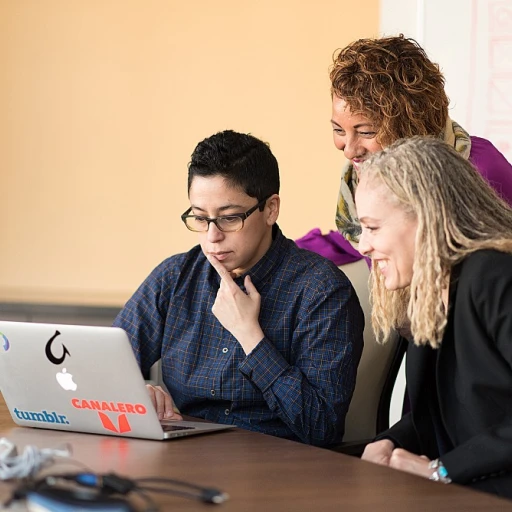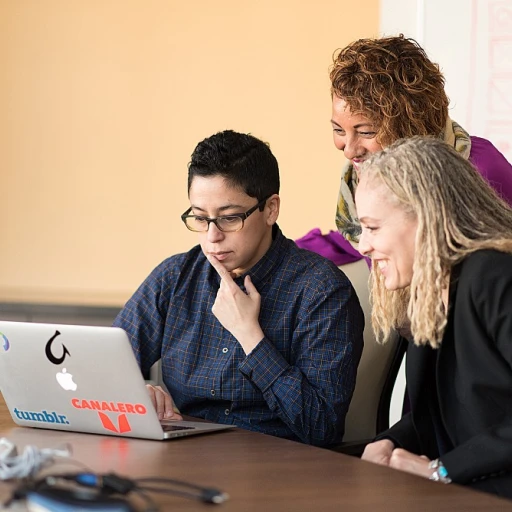
Understanding the Role of Repetition in Learning
The Power of Repetition in the Learning Process
Repetition is often described as the "mother of learning," a term that underscores its critical role in the journey of mastering skills. The process of learning repetition revolves around consistent practice and the continuous reinforcement of skills and knowledge over time. This approach not only fosters memory retention but also enables learners to gain a deeper understanding of the material at hand.
Incorporating repetition into your learning strategy involves engaging in deliberate practice—a methodical approach where the focus is on refining specific skills through repeated action. By doing this, repetition becomes an effective tool to solidify what has been learned and move beyond rote memorization. This is particularly beneficial for students, as well as those engaged in everyday activities requiring skill acquisition or mastery.
The science behind repetition and memory reveals that when information is revisited consistently, it becomes easier to remember, allowing for a smoother transition from short-term to long-term memory. This is particularly crucial for tasks involving complex skills such as learning a language or mastering music. As the brain gradually stores and recalls information, mastery becomes attainable through constant practice.
While repetition alone can significantly enhance learning, the integration of mindfulness and wellness into this practice can provide additional benefits. For example, maintaining a consistent schedule for practice repetition can improve mental health and overall wellness. This deliberate approach ensures that learners remain focused on their goals, boosting the efficacy of each learning session.
Repetition not only impacts the way we learn but also influences the health of our cognitive processes. By providing a clear framework for the learning process, repetition powerfully aids in mastering skills, thus making the journey toward perfection more manageable and rewarding. To explore further how continuous learning and repetition align with long-term wellness and lasting impact, explore our insights on the 7th generation principle in continuous learning.
The Science Behind Repetition and Memory
Exploring the Influence of Repetition on Memory
Repetition plays a critical role in the learning process, acting as a powerful tool to solidify our understanding and retention of information. As human beings, our brains are wired to better remember repetition through repeated actions, making it a fundamental practice in mastering skills. The science behind repetition and memory pieced together over time is fascinating. Engaging the mind in deliberate practice facilitates memory retention. When students deliberately focus on repeated action, their goal of mastery becomes more achievable. This practice repetition helps embed information into the long-term memory, transforming it into usable knowledge. By continuously rehearsing life skills, or even skills as intricate as learning a new language or music composition, learners can harness the power of repetition. This method is not only effective but taps into the wellness of mindfulness, allowing individuals to center their focus on constant practice. As they progress, these skills are ingrained into their daily routine, seamlessly integrating into everyday activities. Furthermore, the mother learning principle—or ‘repetition mother’—emphasizes how initial repetition builds a strong foundation, upon which advanced skills can be layered. This foundational practice underpins the journey towards skill mastery, just as practice repetition is crucial in coaching for sports and other disciplines. Repetition is an integral part of healthy cognitive development and can bring numerous benefits. In the context of student life, or when aiming for personal development goals, engaging in mindful and repetitive learning can unlock new levels of understanding and capability. By weaving repetition into educational strategies, individuals can unlock a wealth of potential, paving the way for achieving mastery in diverse pursuits. For more insights on how schools are integrating repetition in education to expand horizons, visit Expanding Educational Horizons.Practical Techniques for Effective Repetition
Practical Steps to Harness the Power of Repetition
In your journey to mastering skills, integrating effective techniques for repetition into everyday activities can make the learning process more manageable. By understanding the role of deliberate practice and the impact it has on skill acquisition and memory retention, you're already on a path to achieving mastery. But how can you ensure that your methods of practice repetition are as effective as possible? To start, it's crucial to set a clear goal. A well-defined purpose enhances motivation and keeps students on track. Whether it's learning a language, improving music skills or focusing on wellness, a specific objective helps guide the process. Clearly defined objectives facilitate mindfulness, enabling individuals to harness time more effectively. Moreover, constant practice is a key component. Deliberate, repeated actions are necessary to cement skills in long-term memory. Consider allocating dedicated time each day for brief, focused sessions rather than infrequent marathon endeavors. This approach will help you internalize learned knowledge, tapping into the mother learning theory where repetition is mother to learning. It's also important to incorporate a variety of techniques in your practice. Mixing different methods of learning repetition, often referred to as varied repetition, can be greatly beneficial. For example, incorporating quizzes, flashcards or teaching others can reinforce learning in diverse ways. Such varied repetition minimizes burnout, maintains engagement, and can help lessen the challenges often encountered in repeated learning. Lastly, remember to balance practice with periods of rest and reflection. Health and wellness shouldn't be overlooked. Breaks aid memory retention and recharge cognitive resources, ensuring that the effort invested in practice leads to substantial progress. Think of this as a coaching strategy, where listening to your body's needs is just as important as the hard work you put into learning. For more information on how repetition can benefit skill acquisition and provide profound long term advantages in mastering life skills, consider exploring the exploration of new opportunities in other domains.Overcoming Challenges in Repetitive Learning
Dealing with Repetitive Learning Hurdles
Embracing the power of repetition can significantly contribute to skill mastery, yet the journey is often punctuated by a range of challenges. Recognizing and overcoming these hurdles is an essential component of this learning process, vital for students and professionals alike who are driven by goals of personal and career growth.
One of the common obstacles in repeated action is the danger of boredom and monotony. Engaging in constant practice of the same skills can initially seem exhilarating but may eventually lead to disengagement. To counteract this, it's crucial to adopt mindfulness strategies. These not only keep the motivation alive but enhance the learning experience by aligning the practice with meaningful objectives.
Equally significant is the role of effective time management. Allocating specific periods for deliberate practice can help circumvent the pitfall of burnout. Identifying optimal practice repetition intervals can sustain energy and focus, thus contributing to better memory retention of the skills being mastered.
Furthermore, incorporating mindfulness into everyday activities reinforces learned skills. Mindful repetition helps ease the learning of language, music, or any new venture, making it easier to remember the practiced material over the long term. Approaching repetitive learning with this deliberate intention converts challenges into substantial benefits, paving the way for mastery over time.
Finally, coaching and feedback act as substantial support systems. Engaging with experienced mentors or instructors provides the encouragement and guidance necessary to persevere through challenges. They can help identify areas where the repetition may not be effective and suggest adjustments to the practice routines, fostering health and wellness in the process.
In essence, while the arts of repetition and practice require hard work and resilience, recognizing and overcoming these hurdles will help in leveraging the power of repetition, enhancing life skills, and ultimately achieving mastery.
Balancing Repetition with Innovation
Finding the Right Balance
In the journey of mastering skills, repetition is undeniably powerful. However, it is crucial to balance repetition with innovation to ensure effective learning. While repetition helps in memory retention and mastering skills, introducing new elements keeps the learning process engaging and prevents burnout.
Integrating Innovation
To make the most of repetition, consider incorporating innovative techniques into your practice. For instance, if you're learning a language, try varying your practice methods. Use flashcards one day and engage in conversation the next. This approach not only reinforces learning but also makes it easier to remember new information over time.
Mindful Practice
Mindfulness in practice repetition can significantly enhance the learning experience. By being present and attentive during practice, you can better understand the nuances of the skills you're trying to master. This deliberate practice not only aids in mastering skills but also contributes to overall wellness and mental health.
Adapting to Challenges
Overcoming challenges in repetitive learning is part of the journey. It's important to recognize when repetition becomes monotonous and adjust your approach accordingly. Introducing new goals or varying your routine can reignite your motivation and make the learning process more enjoyable.
Benefits of Balanced Repetition
- Enhances memory retention through varied practice.
- Promotes long-term mastery by keeping the learning process dynamic.
- Encourages mindfulness and focus, leading to more effective learning.
- Supports mental health by preventing burnout and maintaining interest.
By balancing repetition with innovation, students and professionals alike can harness the full power of repetition in their learning journey. This approach not only aids in mastering life skills but also ensures a more fulfilling and sustainable learning experience.
Real-Life Success Stories of Mastery Through Repetition
Real-Life Applications of Repetitive Learning
Repetitive learning, when applied diligently, can transform one’s abilities into powerful life skills. In the journey towards mastery, real-world stories encourage us to embrace the benefits of deliberate practice and repetition. Here’s how repetition has played a pivotal role in various realms, helping individuals master skills and achieve their goals.
Consider the world of music, where students dedicate time to practice repetition. Musicians must engage in constant practice and embrace the power of repetition to achieve a level where their skills shine. The practice doesn't just polish their abilities; it engrains the music into their memory, making it easier to remember. This consistent effort can foster an unparalleled connection with their art form, illustrating how mastery of music relies heavily on memory retention through repeated action.
In the realm of health and wellness, the concept of learning repetition aids in the mastery of healthy habits. Whether it's incorporating mindfulness into daily life or cultivating a regular exercise routine, repeated actions over time build foundational skills. For those dedicated to improving their life, the will to persist through repetitive tasks lays the groundwork for long-term wellbeing. They demonstrate how repetition mother’s the learning process, turning everyday activities into effective life-enhancing practices.
On another front, language learning provides compelling evidence of the benefits repetition brings to the table. The learning process, described as challenging, emphasizes the need for repeated exposure and practice. It’s the coaching through repetitive exercises that helps learners master skills in new languages. Over time, what initially seems arduous becomes second nature, showcasing the potential of mastering skills through the repetition learning journey.
These success stories of mastery achieved through repetition are not just tales of hard work but also of strategic practice tailored to individual goals. Such examples of mastery provide inspiration and guidance, illustrating that with time and dedication, the journey towards mastering any skill becomes a realistic and attainable objective.













